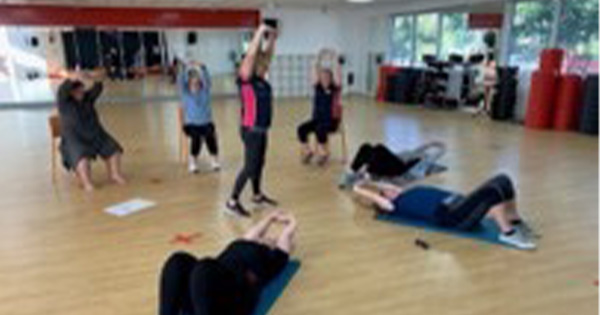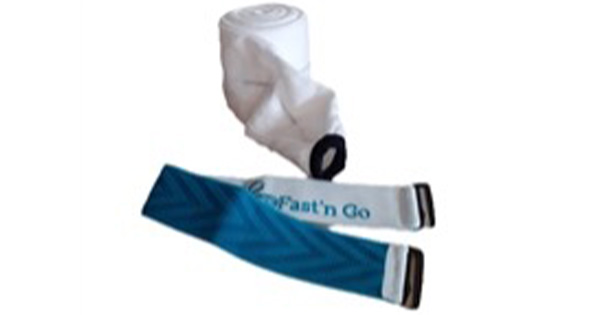An Australian is diagnosed with cancer every 4 minutes (Cormie et al, 2020). Physical activity and exercise has increasingly been recognised as a crucial component in the comprehensive care of individuals diagnosed with cancer.
Misiąg et al (2022) stated: “Physical activity decreases the severity of side effects of cancer treatment, reduces fatigue, improves quality of life, has a positive impact on mental health and improves aerobic fitness in cancer patients. Moreover, it reduces the risk of cancer recurrence and death.”
Research demonstrates that individuals diagnosed with cancer participating in regular physical activity (with exercise being a major component of this) have a 21–35% lower relative risk of cancer recurrence, a 28–44% reduced relative risk of cancer-specific mortality and a 25–48% decreased relative risk of all-cause mortality when compared with insufficiently active or sedentary patients (typically those who do little or no exercise; Cormie et al, 2017). Higher levels of physical activity have been associated with reduced overall mortality and cancer-related mortality in individuals diagnosed with breast, colorectal, or prostate cancer. The relative risk reductions ranged from approximately 40–50%.
Considering the positive impact of physical activity, exercise should be regarded as an essential component in a comprehensive approach to cancer care.
Physical activity versus exercise
Extensive evidence in scientific and medical literature indicates that physical inactivity is a significant public health issue, causing a variety of detrimental effects. Mounting, convincing evidence shows exercise is beneficial in brain health, cancer care, cardiometabolic care, and for general health through lowering all-cause mortality risk (Thompson et al, 2020).
Evidence from cohort studies and trials have informed patient- and practitioner-directed physical activity and exercise guidelines endorsed by leading organisations, such as the Clinical Oncology Society of Australia (2018), Cancer Council (2022) and the Breast Cancer Network Australia (2023) and Exercise and Sports Science Australia (Hayes et al, 2009, 2019; Cormie et al, 2018). Evidence-based programmes that adhere to such guidelines ensure that exercise programmes are scientifically vetted, tailored to the specific needs of cancer patients and designed to safely maximise the benefits of physical activity during and after treatment.
ENCORE
The Encouragement, Normalcy, Counselling, Opportunity, Reaching Out, Energies Revived (ENCORE) is an evidence-based education and exercise-based cancer rehabilitation programme designed to support women in breast cancer care (https://www.ywcaencore.org.au). The programme is open to anyone with a history of breast cancer or preventative surgery of any age. The programme can be commenced as early as 8 weeks post-surgery once an online registration process, including a medical history questionnaire and a medical approval form signed by treating doctor, has been completed.
The programme
ENCORE is a community-based, multi-modality programme that consists of 2 hour sessions every week for 8 weeks, along with a home exercise program. The sessions, led by trained facilitators, incorporate land [Figure 1] and water-based exercises [Figure 2] and provide general support, guest speakers and information on breast cancer recovery, lymphoedema, prothesis, nutrition, massage, complementary exercise, psychological welfare, mindfulness, meditation and connection to community resources and support.
Graduated and carefully progressed exercises are added every fortnight with the aim being to gradually increase fitness and strength over the eight-week programme. Land exercises include deep breathing [Figure 3], mobility exercises of the arms, shoulder, neck and trunk and stretches for the upper and lower body. Pool exercises include aerobic exercises, resistance exercise and a cool down.
The exercises include progressions to allow for graduation [Figure 4]. Participants are also encouraged to undertake a minimum of two additional unsupervised sessions between the ENCORE sessions. Participants are provided with take-home exercise sheets providing step-by-step instructions in written and photographic format for both land- and pool-based exercises. The exercise sheets are reviewed at the end of in-person sessions and participants are encouraged to continue performing exercises at home.
To offer opportunities to advance their ability to participate in exercise, participants can enrol in the programme up to four times. Participants are also encouraged to take advantage of their increased physical capacity and self-confidence to participate in other activities that they find appealing and that are best suited to their physical abilities, such as yoga, walking groups, swimming or wading groups.
Research has shown that individuals recovering from cancer treatment report psychological needs, health system/informational needs, physical and daily activities and interpersonal/intimacy needs (Khajoei et al, 2023). The design of the ENCORE programme reflects the desire to meet a diverse range of supportive care needs. ENCORE offers group information presentations conducted by guest speakers, specifically tailored to address various information requirements related to breast cancer. These presentations are then followed by group discussions centred around these topics.
Although this forum does not offer counselling or supportive care, engaging in interpersonal interaction with women facing similar circumstances has been shown to result in improvements in quality of life, therefore extending beyond the effects of exercise alone (Sherman et al, 2010). Additional support through psychological support and tailored information classes for any women with metastatic disease has been considered to take care of the needs of all women with breast cancer regardless of stage of disease at diagnosis.
Training facilitators
Each ENCORE session is performed in small groups, with a maximum 14 participants, led by two trained facilitators. Many facilitators engaged in delivery of the ENCORE programme have been previous participants of the programme or have lived experience personally or through close association with someone who has had breast cancer. All ENCORE team members, including facilitators, are educated by healthcare professionals, researchers and experienced breast care nurses, either in person or through webinars, on topics relevant to programme participants, such as lymphoedema, metastatic breast cancer and the psychosocial impacts of living with breast cancer.
Training is provided to staff in person and electronically as part of robust measures to ensure consistency in programme delivery. In addition to being provided with an extensive training manual that includes step-by-step instructions on all aspects of programme delivery, online videos of exercises allow ENCORE facilitators to watch how exercises should be performed and taught to ensure consistency in programme delivery. The online videos aim to communicate how exercises should be delivered and what the safety considerations are. It is also a requirement that facilitators refresh their exercise delivery skills using these videos, prior to delivery of each week’s programme.
In addition to programme debriefs, facilitators are supported in their psychosocial being through access to employee assistance counselling support when needed. All staff also complete digital training in and adhere to state and federal Privacy Act requirements as confidential participant information is received through the enrolment process and may be disclosed during the programme.
History
The ENCORE programme was arguably ahead of the times, as it was originally developed in the US by ballet teacher Helen Glines Kohut in 1972. Having experienced breast cancer surgery herself, Glines Kohut saw a need to assist other women with similar experiences to rebuild their physical and emotional strength following treatment. Despite the presence of support programmes, none specifically addressed the physical limitations and discomfort caused by breast cancer, particularly the postoperative effects.
In consultation with the National Young Women’s Christian Association (YWCA), a pilot project was set up in 30 YWCAs in the US to test the programme’s effectiveness. A Committee of Medical and Health Consultants reviewed the findings from this project and recommended Encore to be a safe and effective programme for women following treatment for breast cancer and in 1977 the National YWCA ENCORE programme was launched.
ENCORE was brought to Melbourne, Australia, in 1983 under licence from the YWCA of the US. Since then, YWCA Australia became a registered ENCORE provider and has held the international licence for the programme, successfully delivering the programme for over 40 years in Australia. Following the successful pilot in Melbourne, ENCORE eventually expanded to all states in Australia, making it available in over 50 metropolitan and regional locations. With increased recognition of the importance of exercise following a breast cancer diagnosis, YWCA Australia was approached and supported the granting of licences and training to self-funded licensees, YWCA of Japan, YWCA of New Zealand and YWCA of Canada. While the programme has been delivered for over 40 years in Australia, records show that since 1997, across all states in Australia, more than 1,948 programmes have been delivered and 17,522 participants have benefited from ENCORE.
Notable recognition of the programme occurred in 2005 when the ENCORE programme was the National Winner in the Prime Minister’s Business and Community Partnership Awards, Longevity Category, together with Avon Australia and the Australia New Zealand Breast Cancer Trials Group. In 2022, ENCORE was recognised in the Centenary Anniversary celebration video of YWCA Princeton, New Jersey, and in Memoria of Helen Glines Kohut who passed away in April 2022 at the age of 101.
Outcomes
National clinical outcomes demonstrated increases in strength, mobility, flexibility and emotional wellbeing [Table 1].
A study by Sherman et al (2010) explored the feasibility and psychological impact of ENCORE on Australian post-surgical breast cancer patients (n=162) by comparing the programme to a waitlist control.
Overall adherence and satisfaction with the programme were high, and the authors stated: “Our data support the feasibility of the Encore program with high levels of user satisfaction and acceptability evident along with low dropout and high adherence rates.”
Regarding quality of life and the value of the overall programme, the authors stated: “Significant enhancements at follow-up for quality of life and social support were evident for intervention compared with control participants. Familiarity with exercise and self-efficacy satisfied the requirements for mediation of quality of life. These findings provide evidence for psychosocial benefits of YWCA Encore multi-component program and support the use of such community-based programmes for breast cancer survivors.”
Funding
ENCORE is designed to be free for participants, expansion of the programme was originally funded through Avon’s Breast Cancer Awareness Crusade. Programmes have since been funded through public and community donations, patient support groups, City of Onkaparinga (South Australia), Women’s Health Tasmania, Prostate and Breast Cancer Foundation (New South Wales), Landsdale Roses (Western Australia), the New South Wales Department of Health, South Eastern Sydney Local Health District; Government of Western Australia, Department of Health; and the Commonwealth Department of Health, Driving Social Inclusion through Sport and Physical Activity.
Advisory and operational structure
The programme is overseen by an advisory committee consisting in 2024 of six breast cancer specific health professionals. Members of the committee have strong backgrounds in lymphology, epidemiology, physiotherapy and exercise science and are dedicated to promoting breast cancer rehabilitation. The operational structure is shown in Figure 5.
Conclusion
Exercise programmes such as ENCORE are crucial in aiding the recovery and improving the overall health outcomes of individuals diagnosed with cancer. ENCORE represents the implementation of an evidence-based exercise and rehabilitation programme which has improved clinical outcomes and psychosocial wellbeing of women following breast cancer.



